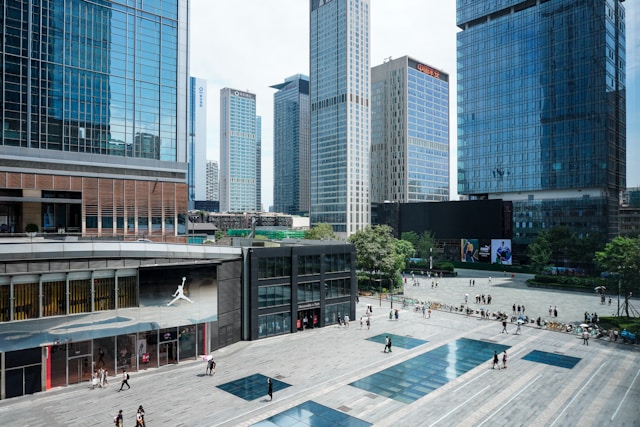
The adjudication committee behind the trial court is most likely to have the final say of your lawsuit in Chinese courts. At present, the judicial reform in China is trying to adjust its extensive power.
Every Chinese court has an adjudication committee composed of the court’s elites. The functions and powers of the adjudication committee include: summarize the case trial experience; discuss major, difficult and complex cases; and other issues related to case trial.
In Chinese courts, the bigger your case is, the more likely you are to face (not directly though) the adjudication committee. Just like a “boss” behind the scene, the committee itself will not show in court, however, it will actually hear the case, discuss and decide the outcome of your case. So, if you have a lawsuit in China, you'd better know how the adjudication committee works.
This post and the following two will introduce the adjudication committee and how the Supreme People’s Court (SPC) is reforming it in the current judicial reform in China.
There are three posts in the Adjudication Committee Series, respectively discussing:
1. What is the adjudication committee of the Chinese court?
2. Why does the adjudication committee of the Chinese court exist and what are its disadvantages?
3. How is the judicial reform reshaping the adjudication committee of the Chinese court?
This is the first post in this Series discussing what the adjudication committee of the Chinese court is. I will describe this institution pursuant to the latest promulgated by the SPC in Sept. 2019, namely the “Opinions of the Supreme People’s Court on Improving the Working Mechanism of the Adjudication Committee of the People’s Court” (最高人民法院关于健全完善人民法院审判委员会工作机制的意见) (hereinafter referred to as “the 2019 Opinions”).
I. Members of the adjudication committee
In practice, there are ten-some or at most twenty-some members in the adjudication committee, which can be divided into three categories: [1]
(1) Leaders of the court, that is, the president and vice president of the court. Sometimes the directors of trial divisions are included as well. These members serve as the regulator in the court.
(2) Senior judges without leadership positions. They are the most experienced ones selected from judges within the court.
(3) Full-time members, who usually assume no other positions, and only hold the positions of members of the adjudication committee. There are usually two full-time members. [2]
As for the members of categories (1) and (2) mentioned above, given that they either assume the supervision responsibility or try cases, they cannot allocate too much energy to the work of the adjudication committee. Therefore, since 2006, the adjudication committee has set up category (3) members, namely full-time members, who are only dedicated to the work of the adjudication committee.
The members of the adjudication committee are the judges with the highest legal professional level, moral perfection and political reliability in the court, so the adjudication committee can be regarded as the elite judge club of the court.
II. Functions and powers of the adjudication committee
1. Overview of functions and powers
The functions and powers of the adjudication committee include:
(1) Summarize the case trial experience;
(2) Discuss and decide on the application of law in major, difficult and complex cases;
(3) Discuss and decide whether the court’s legally effective judgments, rulings and settlement statements should be retried;
(4) Discuss and decide on other major issues related to the case trial.
Furthermore, the adjudication committee of SPC has one additional power, that is, to formulate the trial experience summarized by it as a binding rule (i.e. the judicial interpretation) for courts nationwide.
It is worth noting that the adjudication committee now only has the power to discuss the application of law in major, hard and complex cases. In contrast, before the current judicial reform, the adjudication committee can also determine the fact-finding of these cases.
2. Discussion on “major, difficult and complex cases” by the adjudication committee
In practice, the most important function of the adjudication committee is to “discuss major, difficult and complex cases”. Because this situation is directly related to the specific case and the parties concerned. In other words, as a party concerned, your case will be heard not only by the judges in the collegial panel, but also by other judges (i.e. members of the adjudication committee) behind the panel.
The cases discussed by the adjudication committee are divided into two categories:
(1) Cases that shall be submitted to the adjudication committee for discussion
The collegial panel must refer the following cases to the adjudication committee for discussion, including:
i. Sensitive cases involving national security, diplomacy, social stability, and major, difficult and complex cases;
ii. Cases shall be retried by the court for there being mistakes in the legally effective judgment or ruling thereof;
iii. In a criminal case, the procuratorate at the same level makes a protest;
iv. New types of cases with unclear rules for the application of law;
v. In a criminal case, the defendant is to be sentenced to a penalty below the statutory one, or to be exempted from criminal punishment, or to be acquitted;
vi. In a criminal case, the defendant is to be sentenced to death.
(2) Cases that may be submitted to the adjudication committee for discussion
The collegial panel may, at its discretion, decide whether to refer the following cases to the adjudication committee, including:
i. Cases where there are major differences of opinions among members of the collegial panel, and it is still hard for the collegial panel to make a decision after being discussed by the professional judge meeting (which is also called the presiding judge meeting);
ii. Cases where the proposed decision may conflict with decisions in similar cases tried by the court or courts at a higher level;
iii. In a civil or administrative case, the procuratorate at the same level makes a protest, and the case is significant, difficult and complex;
iv. Cases ordered by the court at a higher level to be reviewed or remanded for retrial;
v. Other cases to be submitted to the adjudication committee for discussion.
III. The Meeting mechanism of the adjudication committee
1. Meeting mode
The adjudication committee functions through meetings, which are divided into plenary meetings and professional committee meetings.
The professional committee meeting comes into being after this round of judicial reform. Judges of the adjudication committee who are proficient in a certain field will join the professional committee meeting in that field, discussing the related cases. Prior to that, all members of the adjudication committee would discuss every case together. It was considered to be unprofessional, because some members may not obtain expertise in some specific areas. Therefore, the 2019 Opinions adds the professional committee meeting into the meeting mechanism of the adjudication committee.
2. Workflow of the adjudication committee
(1) The collegial panel submits the case to the professional judge meeting for discussion;
(2) The professional judge meeting will provide its opinions therefor, and if the collegial panel disagrees, the case will be submitted to the director of the trial division;
(3) The director submits the case to the vice president, who will then submit the same to the president;
(4) The president will submit the case to the adjudication committee;
(5) The adjudication committee will discuss the case and make a decision therefor;
(6) The collegial panel will hear the case and make a judgment according to the opinions of the adjudication committee;
(7) The collegial panel will register the judgment with the adjudication committee.
3. Recusal of members of the adjudication committee
If a member of the adjudication committee should recuse himself from a certain case, he shall do so at his own discretion and report to the president of the court for approval. Prior to the 2019 Opinions, the law did not stipulate whether members of the adjudication committee should be subject to recusal, and this had incurred some criticism.
4. Attendance of relevant personnel
To some extent, the meetings of the adjudication committee may be open to certain personnel, who may attend the meetings as nonvoting delegates. The personnel includes:
(1) The internal personnel, mainly the collegial panel and the director of the trial division involved.
(2) The external personnel, mainly the procurator general of the procuratorate at the same level, National People’s Congress (NPC) representatives, Chinese People's Political Consultative Conference (CPPCC) members, and scholars.
However, the parties concerned are not allowed to attend the discussion of the case by the adjudication committee. Moreover, except for the views of the adjudication committee, which are made public in the judgment, the process of the discussion is private and confidential.
5. Voting
Decisions of the plenary meeting and the professional committee meeting shall be made according to the majority opinions of more than half of all members, and the opinions of the minority members shall be put on record as well. As a result, the adjudication committee makes decisions based on a democratic vote.
6. Opinions of the adjudication committee shall be implemented by the collegial panel
The collegial panel shall hear the case and make a judgment therefor according to the opinions of the adjudication committee, and the judgment shall be registered with the adjudication committee.
7. Disclosure of opinions of the adjudication committee
In principle, the decision made by the adjudication committee and the reasons thereto should be made public in the judgment. Prior to the 2019 Opinions, although the collegial panel made decisions based on opinions of the adjudication committee, it would not disclose such opinions to the parties concerned in the judgment, which had also led to some dissatisfaction.
8. Record-keeping throughout the process
Audiovisual recordings are made on the whole meeting process and the working procedure of the adjudication committee. But the content of these recordings is kept confidential.
9. Independence and being supervised
On the one hand, the adjudication committee should ensure its neutrality. If the discussion is interfered by some external factor, such interference shall be recorded so as to impose liabilities on those who make the improper interference afterward.
On the other hand, the members of the adjudication committee are also responsible for their opinions and votes in the case discussion, and even will bear criminal responsibility when the acts constitute the crime of perverting the law for case trial.
IV. Conclusion
Since the adjudication committee has the power to discuss and decide the result of some major difficult and complex cases, it has given rise to many debates from both inside and outside Chinese courts, for the members participating in the discussion are often not the judges hearing the cases. Therefore, the adjudication committee has always been the focus of every judicial reform in China. The latest mode of the adjudication committee determined by the 2019 Opinions reflects the SPC’s response to such controversies, which is to limit the power of the adjudication committee to some extent.
References:
[1] 《最高人民法院关于改革和完善人民法院审判委员会制度的实施意见》(法发[2010]3号)第6条。
[2] 中共中央《关于进一步加强人民法院、人民检察院工作的决定》
Cover Photo by Evgeny Nelmin(https://unsplash.com/@nelmin) on Unsplash
Contributors: Guodong Du 杜国栋









